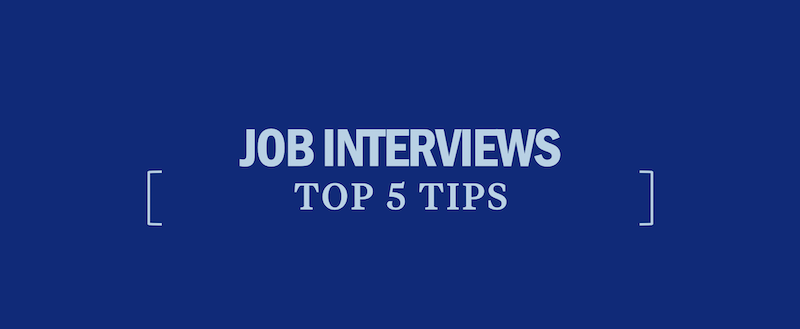Prepping candidates to help them put their best foot forward and to ensure they were being interviewed fairly not only benefits them, but also saves time and resources for recruiters and hiring managers. Here are my tips for prepping candidates and how doing so can be a win for everyone involved in the hiring process:
1. Turn strengths into stories
I urge my candidates to prepare thoroughly before the interview by converting each of their major strengths into two-minute stories. Recruiters can get the ball rolling by asking candidates to think of examples of their accomplishments that best demonstrate how one of their particular strengths was successfully used on the job. And be sure to encourage them to write down these details (including dates, big changes made, outcomes, etc.) to ensure they can easily be recalled during the stress of an interview.
2. Answer in paragraphs, not sentences or chapters
A good answer to an interview question is about 1-2 minutes long. If it’s less than 30 seconds, the candidate could be viewed as too quiet, unresponsive, or uninterested. If more than three minutes, they could be seen as self-absorbed or a poor communicator. To find a middle ground, I would encourage candidates to learn the “SAFW format.” It’s a great way for job seekers to get their answers just right in terms of timing and content:
S: Make a 20-second opening Statement. Restate the question and describe how you’ll answer it.
A: Amplify the opening statement. In a sentence or two, describe some high-level details about a project you were assigned and what you accomplished.
F: Give a Few examples. This is when you need to provide specific data to validate your answer including dates, percentages, the team and role played, metrics, and actual before and after results.
W: Wrap it up with a concluding statement and another question. Summarize your answer and relate it back to the problem being discussed. End the answer with a question like, “Does this seem like something comparable to what you need done?”
3. Always ask for context, especially for behavioral or “whacky” questions
Whenever an interviewer asks a question that seems a bit out of place or “whacky,” whether it has to do with animals, colors, brain teasers, or something else out of left field, I suggest job seekers turn the question around by asking something like, “How is that (point, trait, skill, idea, etc.) actually used on the job or important to job success? Based on that, I’ll be better able to give you an example of some work I’ve handled that’s related.”
This same type of clarifying question can be used whenever a candidate is asked a traditional behavioral question, including something like: “Can you tell me about a time when you had to handle a challenging assignment?” Asking the interviewer to give some examples of challenging assignments likely to be faced in the job will help the candidate give a more appropriate answer.
4. Get a clear picture of the role at the beginning of the interview
Too often candidates are judged based on the depth of their technical skills rather than the actual requirements of the job. To better understand the role, I always encourage candidates to ask the interviewer to describe some of the performance objectives of the role at the beginning of the interview. With this knowledge in hand, they can then describe their own accomplishments that are most comparable to these actual job requirements. This approach will enable the candidate to better understand real job needs and if the job represents a worthwhile career move.
5. Ask forced-choice questions to highlight strengths and ensure nothing is left to discuss
If during the interview a candidate realizes they haven’t had the chance to fully discuss one of their strengths, they need to force the issue by simply asking the interviewer if that strength (such as team collaboration or some technical skill) is important in the role. Then it’s up to the candidate to tell a convincing story ending with a question like, “Is this the type of effort you think would be required to be successful in this role?”
Asking questions like this is a proactive way for candidates to ensure they’re being assessed fairly on their past performance rather than hoping the interviewer asks the right questions.
Final thoughts
What I’ve discovered is that everyone will prep for hours or days for an important company presentation, but spend less time prepping for an interview. As far as I’m concerned, they’re both equally important. The ideas presented here for prepping take work and practice. Hours of it. But if you help your candidates along, they’ll see the results as soon as they realize they’re not thinking about how they’ll answer an interviewer’s questions, but instead are helping direct the questions that they are being asked.
Click here for the original article.





